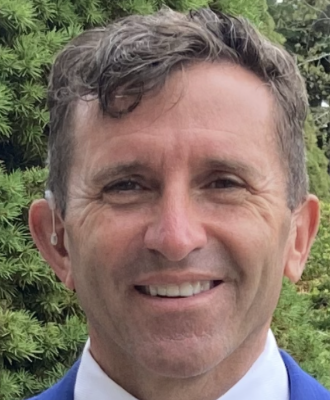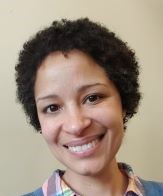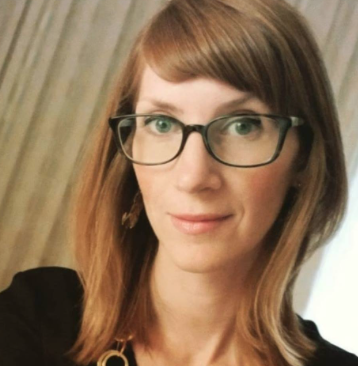The New England Equity and Engagement Consortium (N3EC) is a community comprised of general membership and is currently run by a steering committee. Part of the current work of the N3EC Steering Committee is developing the governance structure for the consortium to create opportunities for additional participation by our members. If you would like to become a member of the consortium, please join our mailing list to stay apprised of activities. We also warmly welcome ideas for collaboration. Contact the steering committee at n3ecsteering [at] gmail [dot] com.
The N3EC is a cross-sector partnership that welcomes participants from all types of public and private colleges and universities (regional colleges and universities, community colleges, small liberal arts colleges, and research universities). While we started as a Massachusetts consortium, we have expanded to New England and are open to participants from other regions. Participants in the N3EC have included faculty, staff, and administrators from Amherst College, College of the Holy Cross, Dartmouth College, Fitchburg State University, Merrimack College, Salem State University, University of Massachusetts Amherst, University of Massachusetts Dartmouth, and Worcester State University.
N3EC Steering Committee

Mary Conley is inaugural Director of Scholarship in Action (SIA), a community-engaged academic initiative at Holy Cross to foster humanities-informed research partnerships among faculty, undergraduates, and community partners in Worcester. Funded initially from a five-year $800,000 Mellon foundation grant in 2018, SIA is a site both to apply for internal community-based research grants and an opportunity to learn equity-informed frameworks to nurture best engaged scholarship practices. Conley is currently working on an article that assesses the impact of engaged scholarship upon faculty scholarly identities and its implications for faculty, students, higher education, and the communities in which faculty live and work. In addition, Conley is a gender historian of 19th and 20th century Britain and empire, whose interest in community-engaged research and teaching developed from a commitment to experiential learning, particularly through study abroad summer courses, and from her prior role as chair of a history department leading faculty and students engaged in community-based storytelling and public-facing histories. Conley has also published widely on naval masculinities and sexualities, including, From Jack Tar to Union Jack: Representing Naval Manhood in the British Empire, 1870-1918 (2009).

William Guedes Cortezia is a Brazilian pedagogue and tenured faculty at the School of Education at Fitchburg State University. As the Director of the Douglas and Isabella Crocker Center for Civic Engagement, Cortezia is also the coordinator for the Resident Leadership Institute at Fitchburg State University. He is a speaker in college access and success, community outreach, and pedagogy for educators working with underserved/underprepared students and students at risk of dropping out of school. He works with higher education institutions, K-12 schools, and non-profit organizations helping them further develop and evolve their work with students and communities. His teaching methods courses include a focus on social stratification, sociology of education and critical pedagogy and teaching.

Aldo Garcia Guevara is Professor of History at Worcester State University (WSU), teaching classes on Latin American and LatinX history and society. In his teaching, he focuses on inter- and multi-disciplinary approaches in campus-centered as well as local and global community- and civic-engaged courses. In addition, he focuses on how world history approaches and methods can address big questions. He served as Chair of WSU’s Sociology Department, was a two-term Director of the university’s Center for the Study of Human Rights, and is currently Chair of the Interdisciplinary Studies Department. Garcia Guevara is a member of the Latino History Project of Worcester (LHPW) Steering Committee, preparing for an exhibit, “Somos Worcester,” at the Worcester Historical Museum in 2024. He is currently working on a co-authored textbook with Tracey Rizzo entitled Revolutionaries, on gender in modern revolutions.

Joseph Krupczynski is a Professor in the Department of Architecture and the Director of Civic Engagement & Service-Learning at the University of Massachusetts Amherst. He is also one of the founding directors of the Center for Design Engagement (CDE), a non-profit community art/design resource center in Holyoke MA that is dedicated to bringing participatory design, public art and civic engagement strategies to local communities and community-based organizations in Western Massachusetts. A first-generation college student from a Puerto Rican and Polish family, Krupczynski’s work is founded on cross-cultural investigations that bridge ideas and places. As an educator, university administrator, and public artist/designer, his scholarship and creative work explores spatial justice, Latinx identity, and restorative creative place-making/keeping as he builds participatory platforms for meaningful engagement — especially in collaboration with underrepresented communities. As the director of Civic Engagement and Service Learning (CESL) at UMass Amherst Krupczynski supports programs and courses that allow students, faculty and staff to work collectively with communities for a more just world. He is the co-editor (in collaboration with Mari Castañeda) of Learning from Diverse Latinx Communities: Social Justice Approaches to Civic Engagement (2017).

Cynthia Lynch is the Executive Director of the Center for Civic Engagement and the Frederick E. Berry Institute for Politics at Salem State University. Lynch provides the strategic vision and leadership for the university’s public engagement initiatives. She also oversees the development of programs that support faculty using anti-racist community-engaged pedagogies and students developing the skills necessary to engage in all spheres of civic life and think critically and work creatively to address injustices facing our communities. Lynch has presented at numerous national and regional conferences about the intersection of civic engagement, equity, and student and community success. Her research focuses on critically engaged civic learning, a social change framework that restructures service-learning approaches to achieve more equitable and just engagement with the community. Her work appears in AAC&U’s Diversity and Democracy and the Michigan Journal of Community Service Learning.

John Reiff has worked with civic engagement and service-learning in higher education since 1980 — as a college teacher, as director of service-learning/civic engagement offices, then since 2015 as Director of Civic Learning and Engagement for the Massachusetts Department of Higher Education, where he works with the state’s 29 public colleges and universities to make civic learning an “expected outcome” for their undergraduates and to build racial equity into their approaches to civic engagement. His scholarship, most often written with colleagues, appears in various journals and edited books on the engaged campus, service-learning and community engagement, and the Carnegie community engagement classification. Reiff consults with colleges and universities across the U.S. and served as project director for the two projects that led to the creation of the New England Equity and Engagement Consortium. His recent work focuses on faculty development designed to help faculty build anti-racist approaches into community-engaged teaching.

Roopika Risam is Associate Professor of Film and Media Studies and of Comparative Literature in the Digital Humanities and Social Engagement cluster at Dartmouth College. Previously, she spent nine years at Salem State University. Her research focuses on digital and public humanities, with an emphasis on facilitating equitable collaboration with communities. Risam’s research has been supported by over $4.1 million in grants from the Mellon Foundation, National Endowment for the Humanities, Institute for Museum and Library Services, Mass Humanities, and the Massachusetts Department of Higher Education. Her first monograph, New Digital Worlds: Postcolonial Digital Humanities in Theory, Praxis, and Pedagogy, was published by Northwestern University Press in 2018. Her current book project, “Insurgent Academics: A Radical Account of Public Humanities,” which traces a new history of public humanities through the emergence of ethnic studies, is under contract with Johns Hopkins University Press. Through her work with the Modern Language Association and her journal Reviews in Digital Humanities, Risam has been working to change faculty evaluation structures for digital and public humanities scholarship.

Matthew Roy is Assistant Vice Chancellor for Career and Civic Engagement at the University of Massachusetts Dartmouth. He is also Director of the Leduc Center for Civic Engagement and a Professor of Management. Roy is a champion for education as a means to individual fulfillment, economic development, and community enrichment. He is the co-developer (with Dwight Giles) of a series of teaching modules used to train faculty in best practices in service-learning. Roy’s receipt of the University of Massachusetts President’s Award for Public Service and the UMass Dartmouth Teacher of the Year award are testimonies to his commitment to excellence in teaching, research, and public service. He presently serves on the Board of Directors of 8 non-profit organizations. Roy is an avid Boston sports fan, reader, and runner. You may see him running along the shoreline in Tiverton, RI where he lives with his two sons, Benjamin and Simon.

Christina Santana is the Associate Director of Community Learning at Amherst College and on-leave from her position as an Associate Professor English at Worcester State University where she was also the Director of the Writing Center for four years (with a student staff of up to 22). At Amherst College, she supports faculty across the curriculum to design and implement community-based courses that balance student and community needs. As a professor, she was an avid participant in working groups and projects that impacted the institutional health of WSU, and she taught a host of writing classes focused on professional capacity-building, courses that helped students navigate conversations and correspondence with representatives from community organizations with the goal of responding to a writing need. Students developed or enhanced their writing knowledge and skills to produce something useful (e.g., a survey, a social media campaign, a new or re-designed document, some grant-related research, etc.); in 2020, Santana won the school of humanities and social sciences Excellence in Teaching Award. Her scholarly background is in community literacy/engagement, public deliberation, collaborative writing — threads that speak to a current focus on civic engagement for a multi-racial democracy. Her writing has appeared in Innovative Developments in Writing Studio Practice, Currents in Teaching and Learning,the Community Literacy Journal, theJournal of Higher Education Theory and Practice, and soon, a WLN: A Journal of Writing Center Scholarship as well as the book Anti-Racist Community Engagement: Principles and Practices.

Cindy Vincent is associate professor of Media and Communication at Salem State University. Her research focuses on critically engaged civic learning, civic media engagement within historically marginalized populations, and the use of dissent in digital democracy for negotiation of political power and social change. Her work appears in Michigan Journal of Community Service Learning, The Journal of Alternative and Community Media, and The International Journal of Game-Based Learning. Vincent has received funding from the National Communication Association, Association for Education in Journalism and Mass Communication, MA Department of Higher Education, and Salem State University for her community-engaged initiatives. She has also received recognition from the U.S. Department of Justice, U.S. Secretary of Defense, U.S. Secretary of Army, and the U.S. Army Corps of Engineers for her community relations initiatives.

Elaine Ward is an associate professor and chair of the higher education department in the Winston School of Education and Social Policy at Merrimack College. She currently serves as a Special Assistant to the President for Civic and Community Engagement, where she help the College harness existing resources and create new opportunities for increasing community impact aligned with the College’s institutional strategic plan. Ward has served multiple regional, statewide, and national networks and consortia to advance community engagement and impact including the Regional Advisory Board, United Way Massachusetts Bay and Merrimack Valley; the New England Equity and Engagement Consortium in partnership with the Massachusetts Department of Higher Education to ensure equity and inclusion are cornerstones of community engagement efforts; the Merrimack Valley Regional Food Security Network; the Lawrence Mayor’s Health Task Force; and the One Haverhill Fund. Nationally, she currently serves on the National Advisory Committee for the Elective Carnegie Community Engagement Classification now housed at the American Council for Education and was the co-PI on the first international pilot for the Carnegie community engagement classification.


